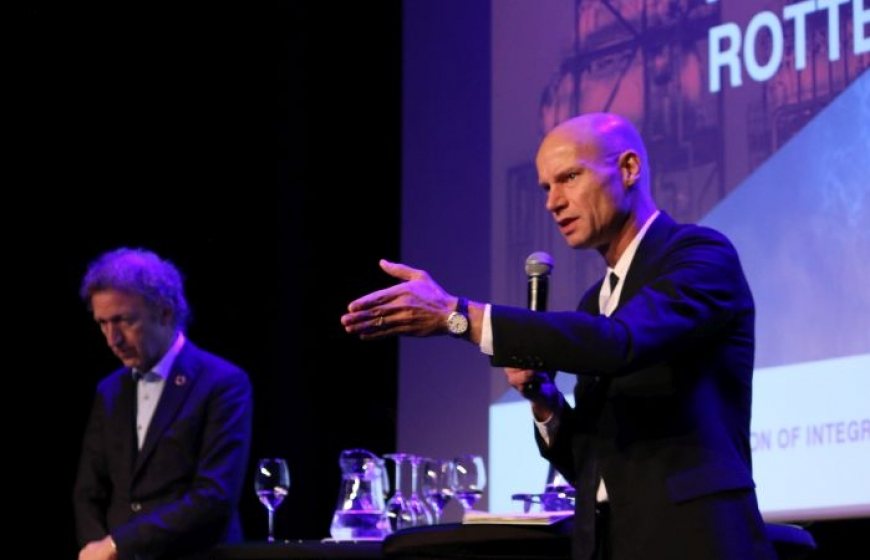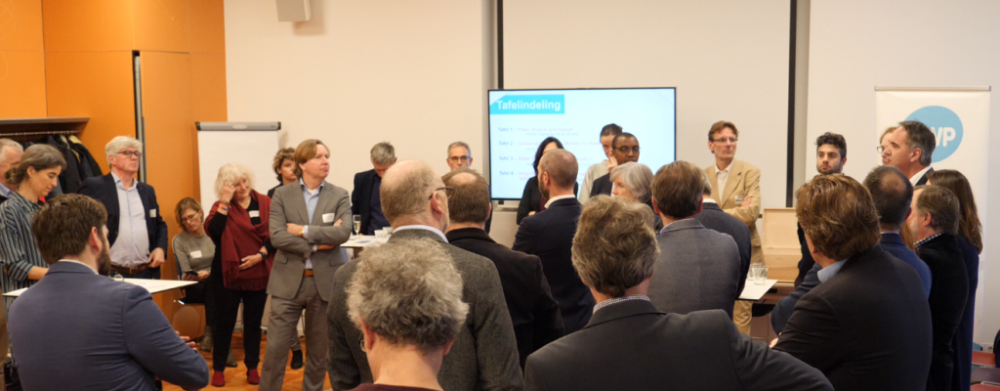Blog
20 June 2019Blog: NGOs indispensable in Dutch Diamond Approach

As partners in the Dutch Diamond Approach, the Government, business community, knowledge institutes and NGOs must ensure inclusive and integrated solutions to the world's water challenges. NGOs provide socio-cultural knowledge and experience, they know the local culture and people, they are the thorn in the side. But they also have to take their own role, it is contributing and benefiting. This is the message of the Dutch Special Envoy for Water Affairs, Henk Ovink, on the eve of the NWP’s NGO Water Platform meeting. Read his blog.
"If we look at the enormous task that we have set ourselves in the face of climate change, the environment and urbanisation, one thing is crystal clear: it is massive and very complicated. All the warning signs are flashing, the planet is squeaking and creaking on all sides. And water is the number one global risk."
With everyone on board, from the beginning to the end
"One problem is that we still invest an unprecedented amount of money in infrastructure all over the world, but not necessarily in the type of infrastructure that makes our world a better place.
There is only one way to face this challenge: head on, embracing the complexity in a comprehensive and inclusive way. With everyone on board, from the beginning to the end. NGOs, governments, research institutions, industry, communities and individuals, formal and informal, all together. Each of them are indispensable. We need to be radically inclusive, as I already pointed out in my book Too Big. Collaboration embraces differences and surprises. It allows us to invest in each other and generate impact through synergy. It takes everyone to change everything."
Thorn in the side
"NGOs bring assets that others can’t. They can and must be the thorn in the side of governments and businesses to take their responsibilities and act as needed. Of course NGOs also have their own responsibilities too. And I realise that joining forces can be challenging. Governments must acknowledge this by giving them the space they need to operate. In turn, NGOs must use that space to the max.
NGOs – with their knowledge and data, especially in the cultural and social fields – are an enormous asset and added value for individuals, communities and institutions. They are closer to everyday practice on the ground; they know the people in the places at risk. And that is key, because every approach to a water problem must be a people’s approach, placed in communities, in the local socio-cultural context. What works in Peru does not automatically work in Bangladesh."

Work inclusively
"NGOs can help make projects inclusive, as co-organisers and partners, from within the coalition of the willing as well as from the side, thorny or not. I immediately want to add that this does not free governments or companies from their responsibility to work inclusively from beginning to end. They cannot simply pass the ball to the NGO’s court. Partnership helps strengthen inclusiveness. For governments and businesses, inclusiveness must always be an integral part of their work and approach, and they must be held accountable by NGOs. This is one role that we all expect NGOs to play.
NGOs are often strongly driven by their fields of work. This is necessary and valuable in the pursuit of an integrated approach. One of NGOs’ strengths is that they are on top of the challenges and needs. They can thus help clarify the urgency: what issues must we tackle together today, tomorrow and in the long run?"
Critical and inspiring
"NGOs are critical and inspiring partners across the world. For instance, look at the ‘City of 1,000 Tanks’ project in Chennai (India), a partner in the pre-disaster challenge that we are currently working on with our ‘Water as leverage’ programme that targets three vulnerable water hotspots in Asia. NGOs in Chennai deliver the indispensable socio-cultural context. Another example comes from Lower East Side in New York, where the ambitious Rebuild by Design programme was set up after hurricane Sandy. Local communities partnered up and very tenaciously acted as a thorn in the side of local governments when the latter risked getting bogged down in single focus solutions. And closer to home, Overdiepse polder showed how listening to each other, really working together, can lead to new alternatives – developed by farmers with help from an NGO – and a better business case."
No silver bullet
"As mentioned above, we are dealing with extremely complex problems and there are no simple solutions. We must all acknowledge that there is no silver bullet. In the complexity, we should join together and hold each other accountable. And do everything in our power to take small and big steps forward: small to include all at all times, and big, bigger, biggest to reach for the stars and deliver on our promises.
For governments, research institutes and the business community, it is great to see NGOs’ capacity to organise and be easy to find. NWP’s NGO Platform certainly contributes to this. I want to know from the NGOs in the platform what we can do better and differently, where they see hurdles to overcome, and where the opportunities to explore and exploit lie. What are the inspiring examples and where are we failing, what is not going well? And why is that? We must learn and listen, work together and do better, every day, all the time!"
More information
Would you like to know more about the NWP’s NGO Water Platform? Please contact Vincent Cornelissen, v.cornelissen@nwp.nl.